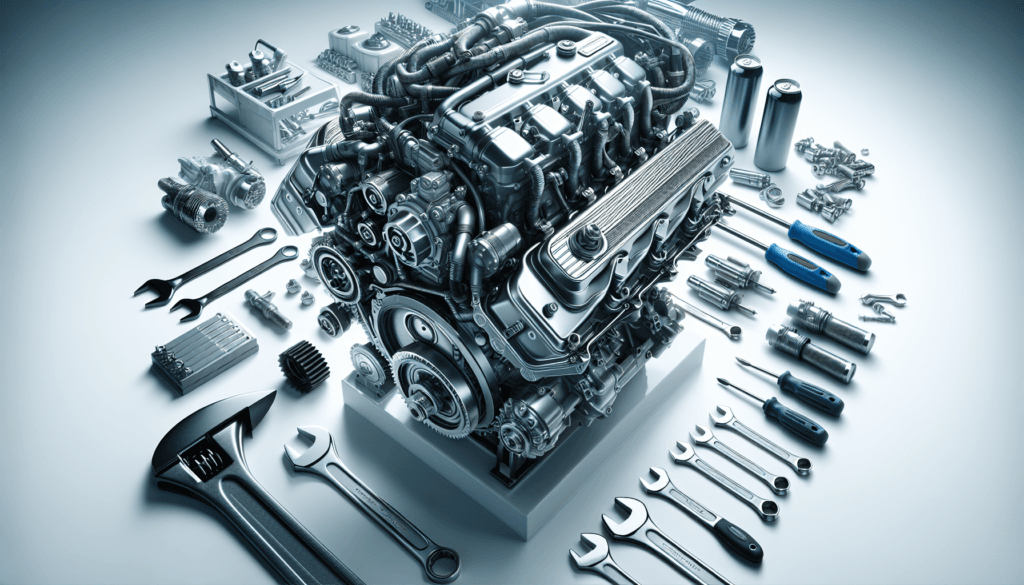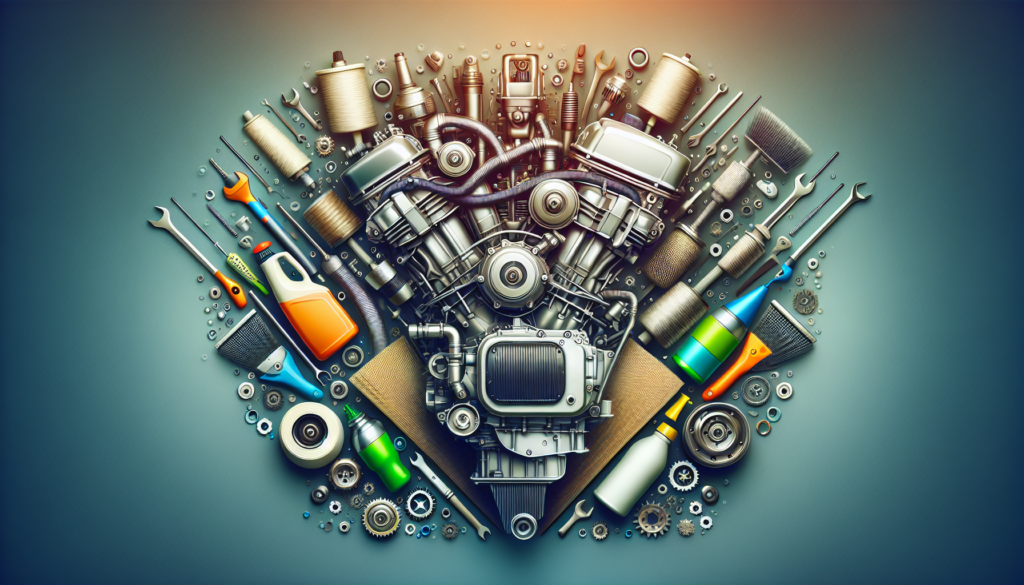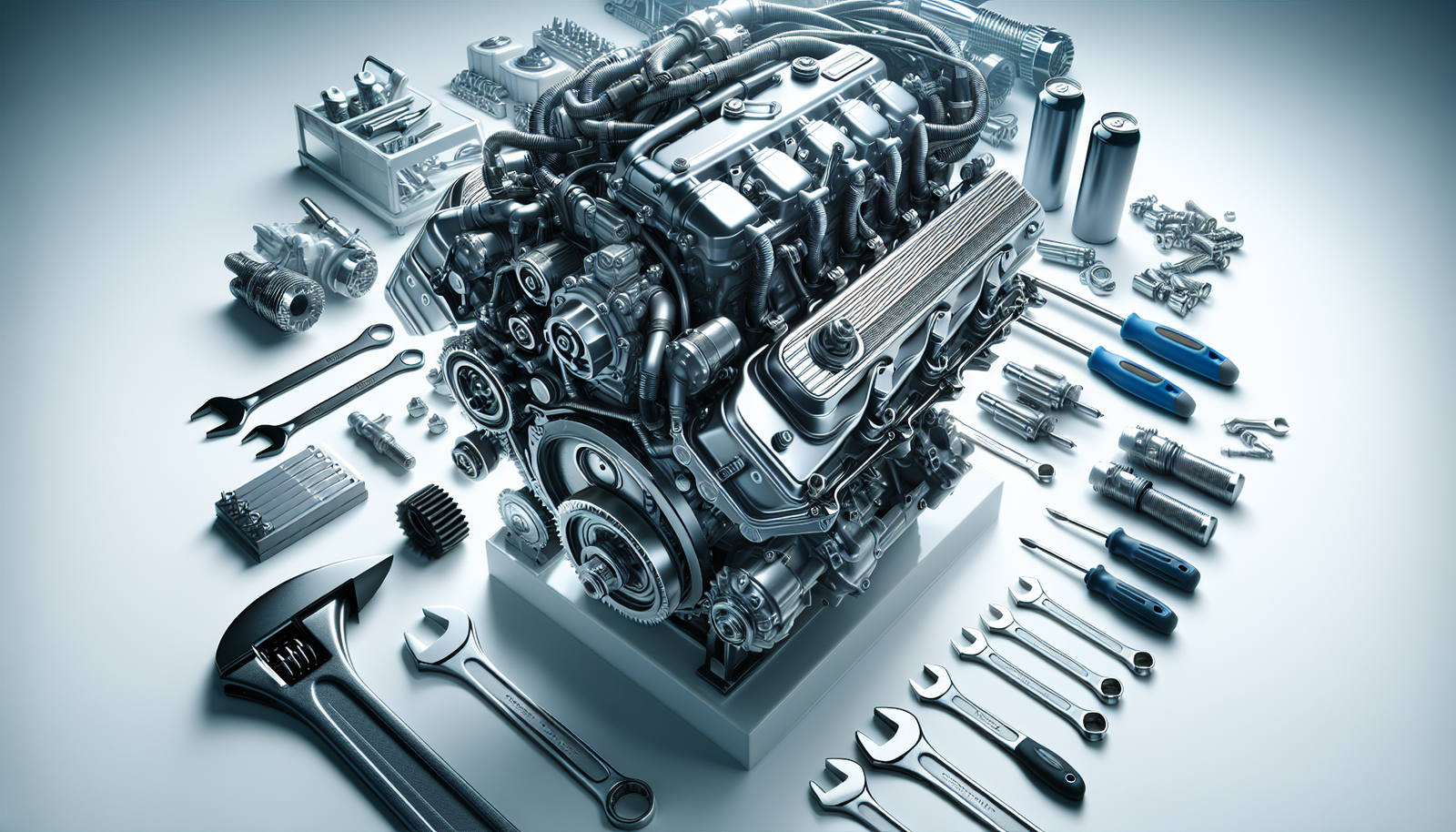Stepping it up with your boating game doesn’t only involve the thrill of cutting through the waves, but also the assurance that your boat engine won’t let you down. “The Best Boat Engine Maintenance Schedule For Long-Term Reliability” is here to guide you through the essential steps in maintaining your trusted marine vessel. It’s all about offering you dependable solutions that prioritize the lifespan of your boat’s engine, from learning the fundamentals of routine checks, fuel and oil replacements, to handling intricate parts such as the propellers and ignitions. With these strategies, not only will you enjoy floating on serene waters alongside the sunset, but also revel in the confidence of a reliable well-maintained engine.
Understanding Engine Maintenance Importance
The health and longevity of your boat’s engine is greatly determined by your dedication to regular maintenance. Engine maintenance has a dual role; it not only ensures the smooth running of the engine itself, but also has far-reaching implications for the overall performance of your boat.
Role of regular maintenance in engine performance
Regular maintenance of your boat’s engine ensures its optimal performance. Just like a finely tuned athlete, an engine that is taken care of will meet its performance expectations. Regular maintenance checks, timely oil changes, and periodic cleaning are some of the practices that contribute to the engine’s performance. It’s a chain of events: a well-maintained engine runs smoothly, aiding in fuel efficiency, and reducing the risks of unexpected breakdowns.
Impact of engine maintenance on boat’s overall reliability
An engine is the heart of a boat; thus, its reliability directly affects the boat’s reliability. Regular engine maintenance ensures that the boat is always ready to hit the waters whenever you desire. Moreover, it boosts the boat’s lifespan, reducing the need for expensive repairs or replacements in the long run.
Common problems attributed to poor engine upkeep
Poor engine upkeep can lead to a series of issues. For instance, neglecting regular oil changes can result in the buildup of sludge, impairing the engine’s functionality. Failing to clean the engine regularly can also contribute to premature corrosion. Other problems associated with poor engine maintenance include overheating, lack of power, and unusual noises. In worst-case scenarios, complete engine failure is a possibility if maintenance is neglected for extended periods.
Essential Tools for Engine Maintenance
A well-equipped toolbox is a must-have for every boat owner. With the right tools at your disposal, you can carry out routine maintenance checks and make minor repairs on your boat’s engine.
Basic toolkit essentials
Essential tools for boat engine maintenance include screwdrivers of different sizes, wrenches, pliers, a socket set, and spark plug sockets. You should also have a multimeter for checking electricity-related issues and a flashlight for better visibility. Additionally, a good toolkit should include safety gear such as gloves and protective eyewear.
Custom tools for specific engine models
While the basic toolkit caters to general engine maintenance, you might require some custom tools for specific engine models. For instance, certain engines might require a special type of wrench or socket. It’s always a good idea to research the tools needed for your specific engine to ensure you’re prepared for any maintenance task.
Where to source quality boat engine repair tools
As for sourcing quality boat engine repair tools, you have several options. Consider checking at high-grade tool shops, marine stores, and reputable online platforms. Remember, conventional tools might not always work for marine applications, so consider purchasing tools designed for boat engines.

Routine Engine Checks
Regular engine checks are a crucial part of boat maintenance. By doing so, you can nip potential problems in the bud before they escalate into major issues.
Daily ignition and cooling system checks
Daily checks involve inspecting the ignition system for any signs of wear or breakages. You’ll also need to review the cooling system, checking for any leaks in the coolant reservoir and ensuring the radiator fan operates effectively. These inspections can be done swiftly and can save you from an inconvenient engine failure.
Weekly oil and fuel system inspections
On a weekly basis, you should inspect the oil and fuel system. Check your engine oil and take note of its level and color. If it’s too dark or grainy, it might be time for an oil change. Similarly, inspect the fuel system to ensure there’s no leakage and the fuel filter is clean.
Monthly checks on belts, hoses and water pumps
Every month, ensure to check the condition of the belts and hoses connected to the engine. Look out for any signs of wear or cracks that could lead to leakage. Also, inspect the water pump for any damages; a faulty water pump may result in the engine overheating.
Detailed Bi-Annual Engine Assessment
A thorough, detailed engine assessment should be performed every six months. This bi-annual check typically involves a more comprehensive inspection of the engine.
Inspecting the engine’s exterior for rust and leaks
The engine’s exterior needs to be inspected for any signs of rust. Rust on the engine can result in its components losing their integrity and functionality. In addition, leaks in the engine should also be addressed immediately to prevent further damage.
Checking for unusual noises or vibrations
During the bi-annual engine assessment, you should run the engine and listen for any unusual noises or vibrations. These could be indicative of issues with certain parts of the engine that may require attention.
Monitoring overall engine performance
Finally, take note of the overall engine performance. Look for changes in power output, fuel efficiency, or any difficulty starting the engine. If you notice any of these issues, it could be a sign that certain parts of the engine need maintenance or replacement.

Regular Engine Cleaning Practices
Cleaning the boat’s engine should be a regular practice for any boat owner. It ensures the removal of grime and prevents the accumulation of salt, which can lead to corrosion.
Effective cleaning techniques for boat engines
Spraying the engine with a marine-friendly degreaser, lightly scrubbing with a brush, and rinsing it off with fresh water are the basic steps in cleaning a boat engine. However, be sure to protect critical engine parts like the alternator and air intake before you start the cleaning process.
Recommended cleaning products for marine engines
There are several products specifically designed for cleaning boat engines. For instance, Salt-Away is a product that removes salt and grime from the engine. In addition, there are several marine-friendly degreasers available on the market that can be used for this purpose.
Mechanics of corroded parts replacement
In case you find any corroded parts during cleaning, they should be replaced immediately to prevent further damage. Corroded parts not only undermine the overall engine performance, but they can also lead to severe engine damage if left unattended.
Scheduled Oil Change Procedures
Regular oil changes are vital for the health of your boat’s engine. They help improve the engine’s performance and extend its lifespan.
Importance of routine oil change
Oil lubricates the engine’s moving parts, reducing friction and thereby preventing wear and tear. However, over time, the oil deteriorates and accumulates impurities, which can affect its performance. Changing the oil regularly ensures that there’s always fresh, clean oil to take care of your engine.
Choosing the right oil for your boat engine
Not all engine oils are the same, so choosing the right one for your boat’s engine is important. Be sure to check your engine manufacturer’s recommendations on the type and grade of oil to be used.
Step-by-step oil change process
The oil change process involves turning on the engine to warm up the old oil, draining the old oil, replacing the oil filter, adding new oil, and then checking the oil level. Remember to properly dispose of the old oil and filter as they can be harmful to the environment.

Fuel System Maintenance
The fuel system plays a crucial role in your boat’s performance, so it needs regular maintenance.
Addressing common issues with fuel systems
Common issues with fuel systems include clogged fuel filters, fuel leaks, and fuel contamination. Regular inspection and timely replacement of fuel filters can prevent fuel system problems. Always look out for signs of leaks around the engine and fix them immediately.
Routine checks and servicing of boat’s fuel system
Routine checks should involve inspection of the fuel lines, tests for leaks, checking the condition of fuel filters, and measuring fuel pressure. In case of any issues, consider consulting a professional mechanic.
Preventing and addressing fuel contamination
Fuel contamination can cause serious harm to your boat’s engine. Adding a fuel stabilizer and keeping fuel tanks full can help prevent fuel contamination. If contamination happens, it is advisable to clean the entire fuel system.
Cooling System Maintenance
The cooling system plays a vital role in maintaining the engine’s temperature and preventing overheating.
Signs of cooling system problems
Warning signs that your engine’s cooling system might be experiencing issues include an unusually high engine temperature, coolant leaks, and rust or discoloration on the hoses or belts.
Maintaining the engine’s water pump
Regular maintenance of the engine’s water pump should involve checking for leaks, damages, or excessive noise. A failing water pump can lead to the engine overheating, which can cause severe damage.
Preventive measures to avoid overheating
Prevent overheating by ensuring that the coolant is at the correct level and using the right quality of coolant. Regularly check the water pump and thermostat, and ensure that the fan belt is in good condition.
Proper Battery Maintenance
The battery is responsible for providing the electricity needed to start your boat’s engine and run the electrical appliances on board.
Startup battery checks
It’s good practice to check the battery before every startup. Inspect it for any signs of damage and ensure the battery connections are clean and tight.
Appropriate charging techniques
Ensure the battery is always correctly charged. Undercharging or overcharging can significantly reduce the battery’s lifespan. Using a marine battery charger can ensure the right charging techniques are used.
Replacing an old or faulty battery
If your battery is old or constantly failing, consider replacing it with a new one. An unreliable battery can inconvenience you and even contribute to engine problems.
Professional Engine Servicing
While you can perform regular maintenance on your boat’s engine, there are times when seeking professional help is necessary.
When to seek professional help
Instances when professional help might be needed include situations where the engine is overheating frequently, there is excessive smoke, or any abnormal sounds.
Choosing a credible marine engine mechanic
It’s crucial to choose a marine mechanic with experience and a good reputation. Check for certifications and ask for referrals from fellow boat owners.
Understanding the mechanics of a professional engine service
Professional engine service often involves a comprehensive check of the engine including computer diagnostic tests and checks on the fuel, electrical, exhaust, and coolant systems, among other things. By understanding what a service involves, you can ensure your engine is getting the appropriate attention it requires.
In conclusion, regular engine maintenance is a small price to pay for the reliability, performance, and longevity of your boat. You can handle some tasks with a good toolkit and a little know-how. Other tasks, however, may require professional attention. Always remember that prevention is better than cure, and a well-maintained engine is likely to serve you faithfully for years to come.

